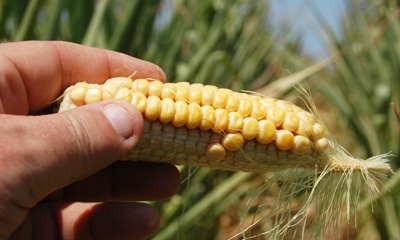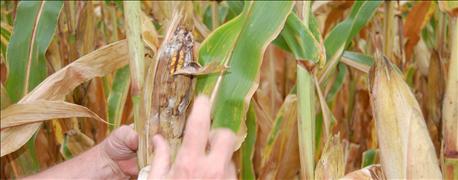July 21, 2016

Many more acres of corn started to pollinate within the past week. Take time to walk your fields and see what you find.
Here are four things to watch for in the field this week.
1. Determine how corn pollination is progressing.
To check on pollination progress, carefully pull a few ears and remove the husks without removing silks. Hold the ear out straight from your chest, and shake it gently. Each silk goes to one ovule. Silks that fall off mean those ovules have pollinated. Silks that remain attached to the cob have not yet pollinated. This gives you an indication of how far into pollination you are.
2. Watch for western bean cutworm and other insects.

WATCH FOR INSECTS: According to scouts, trap counts are on the rise for one of the nastiest pests of all — western bean cutworm. Be especially alert if you have corn without traits.
Western bean cutworm numbers are climbing, so be sure to start looking for them. This is especially critical in non-traited cornfields. Also, as you are looking for emerging silks, make sure to look for insect feeding. If silk clipping becomes an issue before ears are pollinated, treatment for silk-clipping insects may be warranted. The two primary insects that cause silk clipping in corn are the Japanese beetle and the corn rootworm beetle.
3. Consider fungicides and insecticides for soybeans.
Many soybeans are getting to the R3 stage of growth. This is when we see the best return on spraying fungicides. The humidity has helped bring on some disease, but dry and hot weather would slow them down. Leaf feeding from insects has also hit some hot spots in Indiana. If you’re looking to spray a fungicide, take time to look for insect feeding and insects. We use percent of leaf defoliation as a guide to deciding whether to spray for insects or not.
4. Check soybeans for late-germinating weeds.
Pull back soybean leaves and look into the canopy. Waterhemp and Palmer amaranth will germinate late into the summer. These weeds must be controlled when they are small. Scouting in the field and not from the windshield is a must.
Gauck is a sales team agronomist for Beck’s. He writes from Decatur County.
You May Also Like




